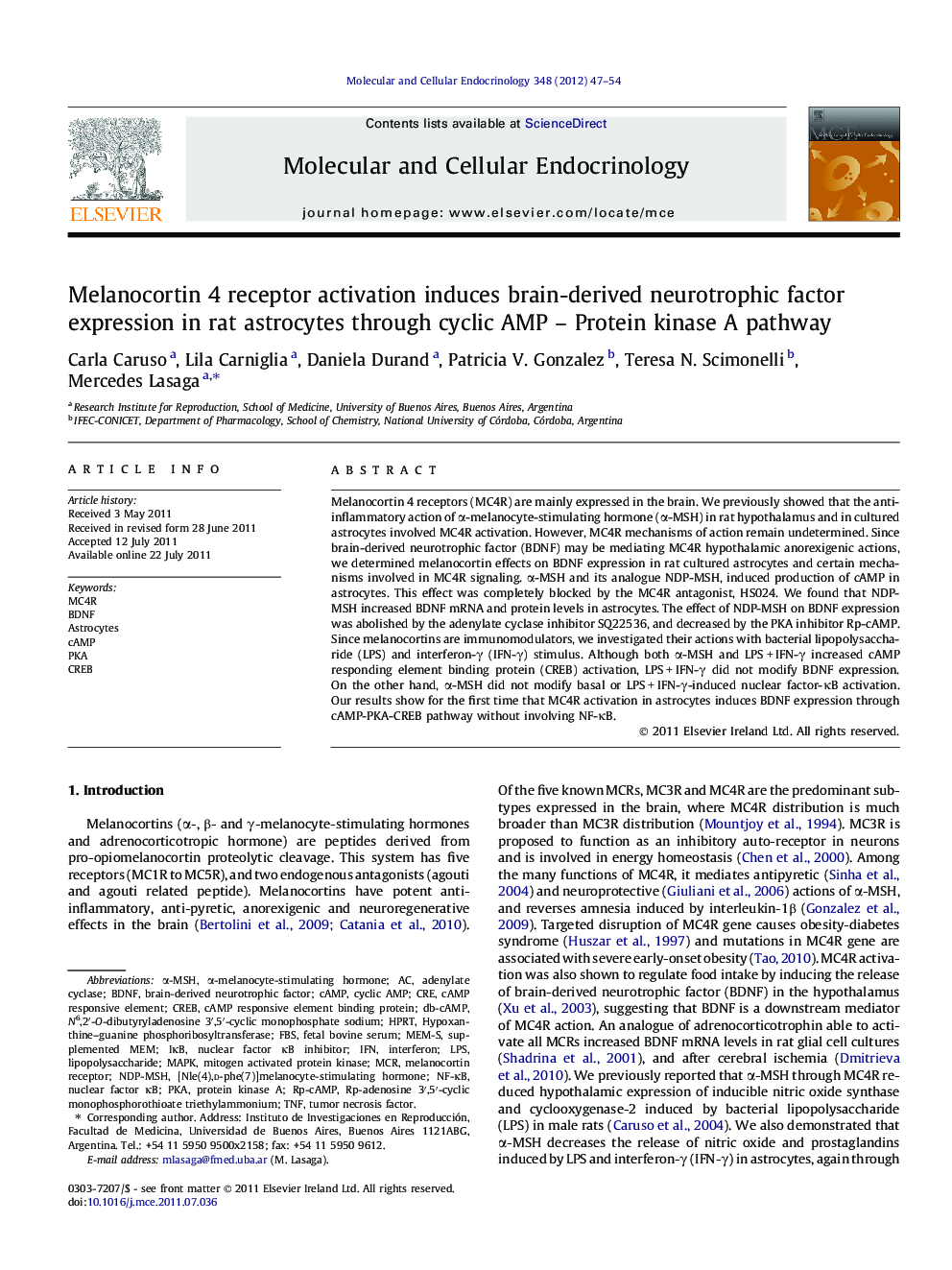| Article ID | Journal | Published Year | Pages | File Type |
|---|---|---|---|---|
| 2196499 | Molecular and Cellular Endocrinology | 2012 | 8 Pages |
Melanocortin 4 receptors (MC4R) are mainly expressed in the brain. We previously showed that the anti-inflammatory action of α-melanocyte-stimulating hormone (α-MSH) in rat hypothalamus and in cultured astrocytes involved MC4R activation. However, MC4R mechanisms of action remain undetermined. Since brain-derived neurotrophic factor (BDNF) may be mediating MC4R hypothalamic anorexigenic actions, we determined melanocortin effects on BDNF expression in rat cultured astrocytes and certain mechanisms involved in MC4R signaling. α-MSH and its analogue NDP-MSH, induced production of cAMP in astrocytes. This effect was completely blocked by the MC4R antagonist, HS024. We found that NDP-MSH increased BDNF mRNA and protein levels in astrocytes. The effect of NDP-MSH on BDNF expression was abolished by the adenylate cyclase inhibitor SQ22536, and decreased by the PKA inhibitor Rp-cAMP. Since melanocortins are immunomodulators, we investigated their actions with bacterial lipopolysaccharide (LPS) and interferon-γ (IFN-γ) stimulus. Although both α-MSH and LPS + IFN-γ increased cAMP responding element binding protein (CREB) activation, LPS + IFN-γ did not modify BDNF expression. On the other hand, α-MSH did not modify basal or LPS + IFN-γ-induced nuclear factor-κB activation. Our results show for the first time that MC4R activation in astrocytes induces BDNF expression through cAMP-PKA-CREB pathway without involving NF-κB.
► MC4R activation by melanocortins induces BDNF expression in astrocytes. ► MC4R-induced BDNF expression involves cAMP-PKA pathway. ► A MC4R agonist induces CREB but not NF-κB activation.
